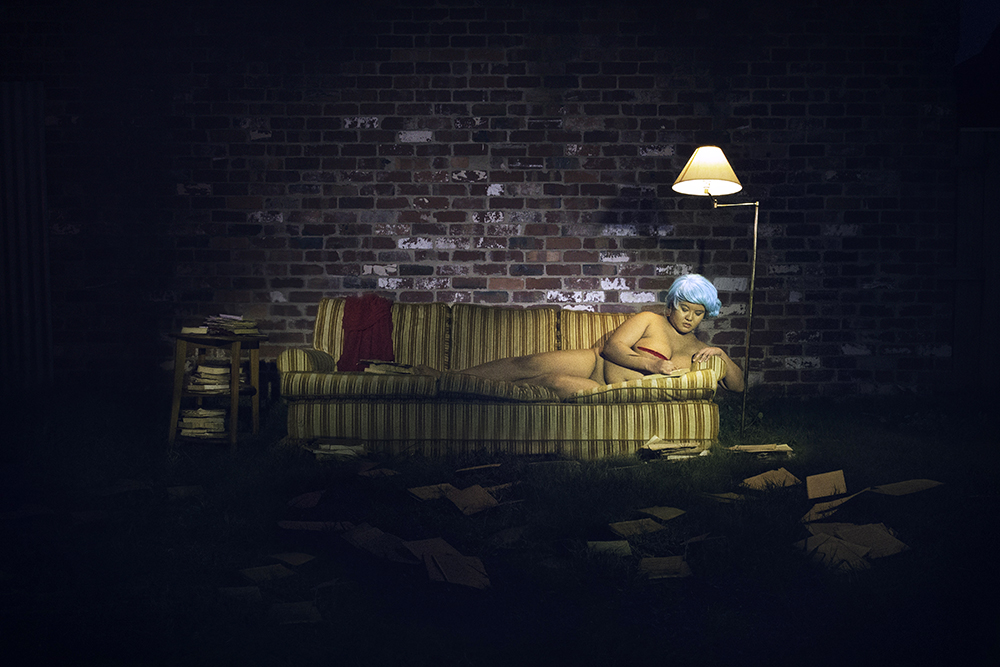
Keira Hudson | Angela Serrano Innocent Eyes! 3 | with Judy Hudson & Kyl Jones
The third image features the same woman this time with short pale blue hair, this time nude, stretched out on a couch beneath a lamp and the evening sky, bent over her journal, open books strewn everywhere.
These are not what one usually sees or seeks when one looks at images of women, whether in classical art, glamour magazines, glossies, or an Instagram gallery. These images are not trying to sell clothes or cosmetics or body modification services. They are visual assays into the experiences of shut-in and open spaces, physically and psychologically speaking. They are physical expressions of the felt sense of where and to whom a woman’s body can belong.
Alison Whittaker wrote three poems that track shifts from and towards markedly different moods. In the first poem ‘i. when to clean a wig’, queerness breathes in the irregular spaces between the words. Pronouns matter here: the narrator is for the most part an ‘I’, who speaks of a ‘husband,’ a ‘he,’ who is in possession of a ‘cunt’. The poem ‘ii’ takes up considerably less surface area on the screen than the first and the last. It moves from a sense of being constrained by the emotional labour demands of a complicated marriage, to learning to become comfortable in the messy uncertainties of one’s dreaming. The third poem ‘iii. a seeing’ takes up space, with large gaps yawning between phrases. Toward the end is the phrase ‘[b]ecome big’, which is how this trio of poems ends up: big, unapologetically so. The imagery in Whittaker’s poems breathes a narrative into otherwise unstoried photographs. The woman in the photographs suddenly has an interior life, love, motivations, character. She is not frozen in time, she is moving through time.









